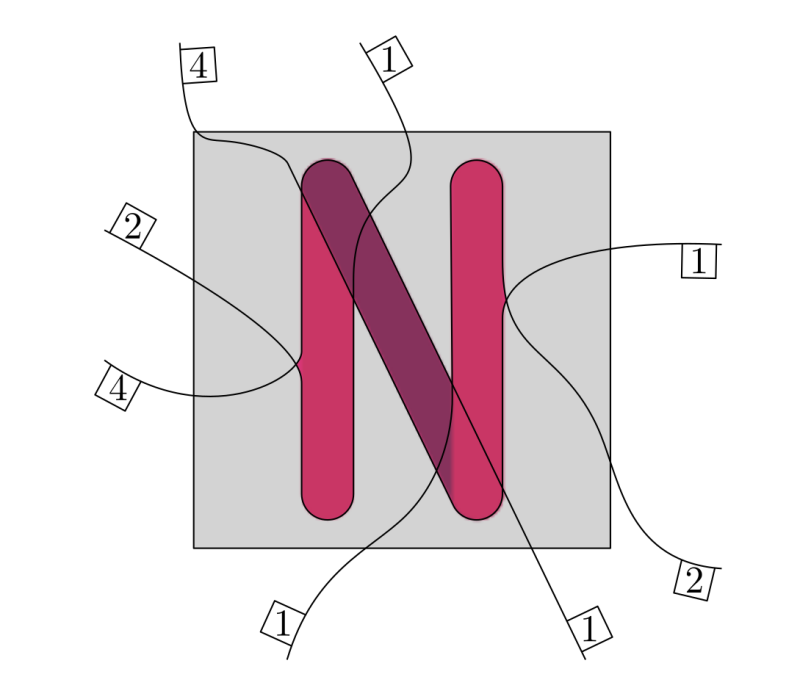In November 2024 a masterclass on networks and algorithms will be organised by the mathematics research program NETWORKS. Teachers and school students at the level of VWO 5-6 are welcome to join this two-day masterclass, no specific prior knowledge is needed, only enthousiasm about mathematics!
Following the tradition of the last five years (see here for all previous editions and all the material), also this year the NETWORKS research program (a mathematics research collaboration between the University of Amsterdam, Leiden University, the Eindhoven University of Technology, and the CWI (Centrum Wiskunde en Informatica)) will organize a two-day masterclass on the mathematics behind networks and algorithms. The masterclass will be organized twice, once in Eindhoven on the campus of the Eindhoven University of Technology, and once in Amsterdam at the Science Park. The dates are given below.
Eindhoven: Tuesday 5th of November 10-16, and Thursday the 7th of November 10-16.
Amsterdam: Thursday 14th of November 10-16 and Tuesday 19th of November 10-16.
The program and alle the relevant practical information will be provided a week before the masterclass.
Goal, speakers and topics
Each two-day event is intended for secondary education students (VWO 5 or VWO 6) and teachers. The event aims to introduce secondary school students with an interest in mathematics to education at a university and to provide them with further deepening in their mathematical knowledge. The programme of each day consisted of lectures, discussions, exercise sessions, simulations, and some computer programming. The speakers for NETWORKS goes to school 2024 are Artem Tsikiridis (CWI Amsterdam) and Jiesen Wang (University of Amsterdam). The general theme of the masterclass of this year is Game Theory!
Game theory is the study of mathematical models of strategic interactions. It has applications in many fields of social science, and is used extensively in economics, logic, systems science and computer science (taken from Wikipedia).
This field of research has grown incredibly in the last decades and has given birth to many wonderful mathematical results. Want to learn more about this modern and wonderful field within mathematics and economics? Join our masterclass! If you want to take a first proof of Game theory you can play this online game called The Evolution of Trust. Join us to learn more about the math behind it!

Jiesen Wang: Game theory and the mathematics behind queues!
Decision-making problems are concerned with finding the best option from a set of available alternatives, given one’s belief about the environment.
The environment cannot be manipulated by the decision-maker but interacts with her. The optimal decision depends not only on the system state, but also on others’ decisions. This can be formulated and analyzed as a non-cooperative game among the individuals.
Game theory provides a formal way to describe the interactions among individuals, thus it allows us to model “rules of the game”. I will illustrate how this works via a basic queueing model, which is usually used to predict queue lengths and waiting times using techniques from probability theory and mathematical modelling.
Artem Tsikiridis: Game theory and the mathematics behind traffic congestion
Tomorrow morning, you’re preparing for a road trip to visit an old friend in another city—someone you haven’t seen in a long time. Naturally, you want to get there as quickly as possible, so you consider taking the shortest route. It seems like the most efficient option. But have you accounted for morning rush hour? What happens if everyone else has the same idea, and you end up stuck in heavy traffic?

Moreover, your trip doesn’t just affect you—it impacts every other driver on the road. But don’t feel bad—it's totally normal to be a little selfish in this situation (after all, you haven’t seen your friend in a while!). However, this raises a question: How much does “selfish” decision-making impact traffic congestion?
In this talk, we’ll explore how mathematicians use Game Theory to model such strategic interactions. We will be using network flows on graphs to model traffic and the Price of Anarchy of games to quantify the impact of selfish behavior in traffic. Additionally, we’ll discuss whether central coordination or improved infrastructure can help reduce congestion.
Do you want to learn more about modern mathematics from young researchers themselves and to have an experience at one of the leading Dutch universities? Are you curious about how concepts you have seen at school, like functions and probabilities, are used to address modern problems? Then this masterclass is for you!
For registration please fill in the form at the end of this page.






